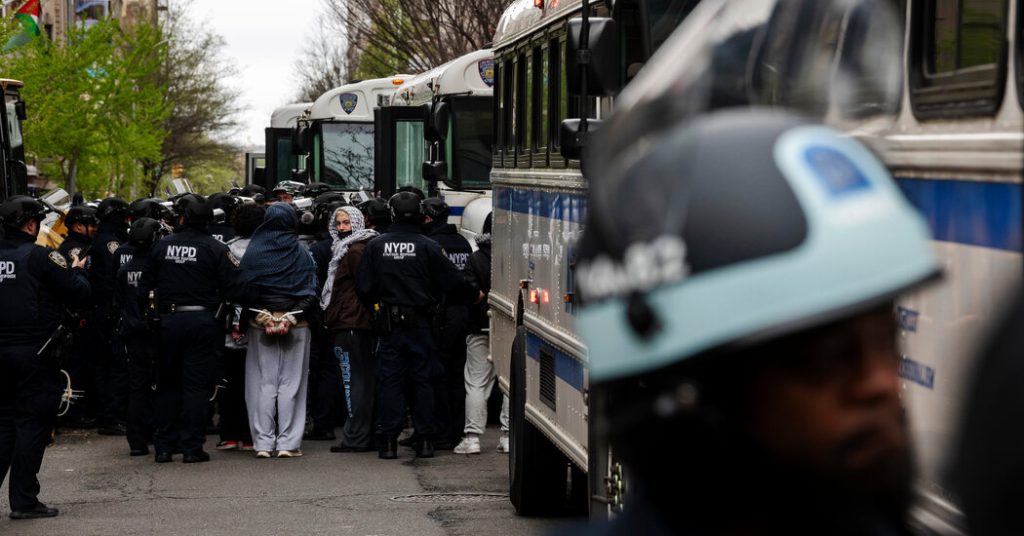Barnard College has announced that most of the 53 students who were arrested and suspended after participating in a pro-Palestinian protest encampment at Columbia University will be allowed to return to campus. The college has reached resolution with nearly all of the students who were arrested when Columbia asked the police to clear the encampment last week. About half of the arrested students were from Barnard, and the college stated that suspended students who reached agreements with the college on Friday would have their access to residence halls, dining facilities, and classrooms immediately restored. The college expressed its commitment to supporting students with diverse backgrounds and perspectives.
Tensions on college campuses have been high due to ongoing protests related to the Israel-Hamas war, with Columbia and Barnard being the sites of antiwar protests. Columbia’s encampment, which appeared on the same day that the president of Columbia University testified before Congress about antisemitism, led to arrests and suspensions of students from both Columbia and Barnard. The student group organizing the encampment, Columbia University Apartheid Divest, stated that Barnard’s decision to lift suspensions was made possible by a mass movement of supporters advocating for the students’ rights.
Izzy Lapidus, a senior at Barnard who was among those suspended, highlighted the various deals offered by the administration to lift suspensions, emphasizing the importance of students not breaking the rules again. Negotiations between lawyers for the students and the college took several days, and most students were expected to accept the offer, particularly seniors who were close to graduation. While students were grateful for their suspensions being overturned, many felt that the punishment was unfair given their peaceful protest for divestment and a free Palestine.
Professor Katherine Franke helped negotiate the agreement on behalf of the Barnard students, arguing that the suspensions violated state law in addition to college rules. She emphasized the severe mental and physical health issues that many students were facing, leading to the urgency of getting them back in the dorms. The agreement with Barnard immediately reinstated the suspended students, but those taking classes at Columbia are still barred from the campus. The encampment at Columbia has continued to grow since the initial arrests, but negotiations are ongoing and the police have not been called back in.
In the months leading up to the tent protest at Columbia, Barnard implemented strict rules to address campus unrest, including banning dorm door decorations in response to students displaying stickers and slogans supporting the Palestinian cause. The policy changes sparked a strong reaction from students at Barnard, a school known for valuing activism. The involvement of high-profile names, such as Isra Hirsi, a Barnard student and daughter of Representative Ilhan Omar, highlights the significance of the protests and the impact of the negotiations in allowing students to return to campus.


